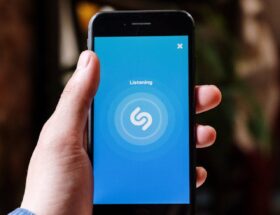Hello radio fans! Today, we’re tuning in to a question that seems to pop up more and more these days: Does anyone still listen to the radio? With podcasts, streaming services, and on-demand everything, is there still room for traditional radio in 2024? Radio may seem outdated to some, but it continues to hold its own in surprising ways. Let’s break it down.
A Look at Radio’s Legacy
Radio has been a cornerstone of media for over a century, shaping the way we consume news, music, and entertainment. It’s easy to see why many people might think that in 2024, radio is a thing of the past. After all, why listen to a station when you can stream any song, podcast, or show on demand? But before we declare radio dead and gone, let’s consider a few things.
The Internet Revolution: Blessing or Curse for Radio?
There’s no denying that the rise of the internet has dramatically transformed how we listen to music and absorb content. Spotify, Apple Music, and YouTube have taken the world by storm, allowing listeners to curate their own experiences. Podcasts have also exploded, offering in-depth content on every imaginable topic. So, if you can get exactly what you want, whenever you want it, why stick with radio?
The answer isn’t as simple as it seems.
Radio’s Core Strength: Localism and Human Connection
One of radio’s biggest advantages is its local nature. While streaming services and podcasts can give you endless choices, they often miss the mark when it comes to local culture and news. Radio stations serve as a community hub, offering local news, traffic updates, and real-time conversations about things that matter in your area. Whether it’s weather alerts, community events, or even local music, radio keeps listeners connected to their physical communities in a way that global platforms simply can’t.
For many, tuning in to a morning show hosted by local personalities is still part of their daily routine. There’s something comforting about knowing the person on the other end is living through the same events, traffic jams, and weather conditions as you are. That human connection can be a big reason why many people continue to listen.

The Rise of Digital Radio
Another thing people tend to overlook is how radio itself has evolved in the digital age. Traditional FM/AM stations now stream their content online, allowing listeners to tune in from anywhere in the world. Platforms like iHeartRadio and TuneIn have brought radio into the digital space, offering thousands of stations at your fingertips. So while the medium has adapted to fit the times, its core remains the same: live, curated content designed to engage listeners.
In fact, the ability to stream radio online has given it a new kind of relevance. Want to hear a local show from a different city or country? It’s as simple as opening an app. Now, radio has global reach without losing its local charm.
Why Some Listeners Still Prefer Radio
Interestingly, radio serves up something that algorithms can’t always provide: serendipity. Streaming platforms often box us into what their algorithms think we’ll enjoy, which can create an echo chamber of content. Radio, on the other hand, gives listeners a chance to stumble upon something new—be it a song, an artist, or a point of view. That element of surprise is still appealing to a lot of people, even in 2024.
Radio and Driving: The Untouchable Pair
Let’s not forget about the place where radio still reigns supreme—the car. According to a 2023 report by Edison Research, more than 50% of in-car audio time is still spent listening to traditional AM/FM radio. Even with the rise of satellite radio, podcasts, and Bluetooth connectivity, many drivers still default to their local stations for music, talk shows, or news on their commute.
In a world that’s constantly on the move, sometimes the simplicity of turning on the radio without scrolling through playlists or fiddling with apps is exactly what we need. Plus, the live nature of radio makes it great for real-time updates—whether it’s traffic jams, weather alerts, or breaking news.
Radio as a Curator
If we take a step back, radio’s role as a curator is still highly relevant. With streaming services, you often have to know what you’re looking for. Radio, by contrast, does the work for you. It presents a carefully crafted selection of music, whether that’s the top hits or a specialized genre, without you having to spend time searching. For people who don’t want to be constantly curating their own listening experience, radio still offers an effortless way to discover new content.

Radio is Evolving, Not Dying
So, does anyone still listen to the radio in 2024? The answer is a resounding yes, but with some modern twists. Radio has certainly evolved—it’s not confined to just the AM/FM dial anymore. Now, it’s streaming online, embedded in apps, and available globally. People tune in not just for music, but for local updates, live news, and the unexpected moments that radio uniquely delivers.
In an era where we often have too many choices, the curated, human-driven experience of radio still holds value. Whether you’re in the car, working from home, or just in need of some local connection, radio continues to be a reliable companion.
What’s your take? Do you still listen to the radio, or have you fully embraced streaming and podcasts? It’s interesting to think about how we all engage with audio content in 2024.
Until next time, keep it tuned to GertieBlu!









